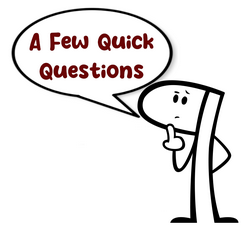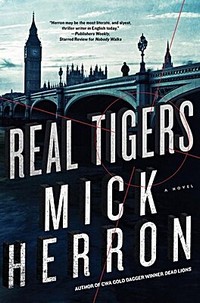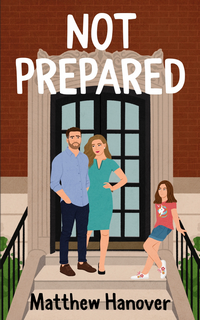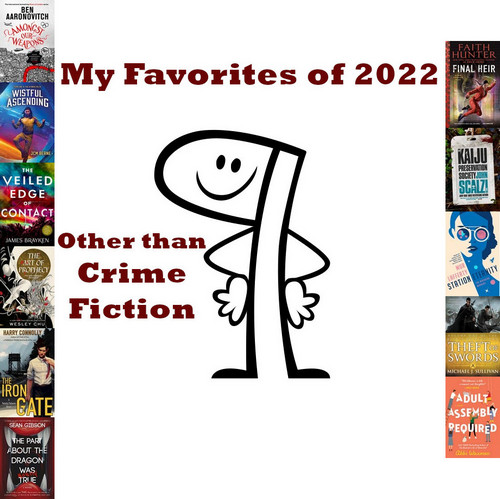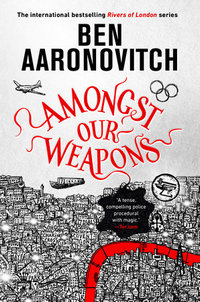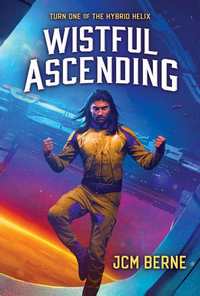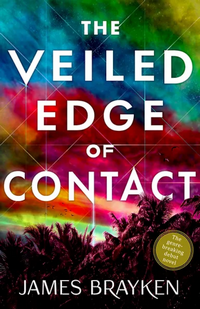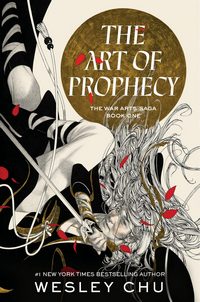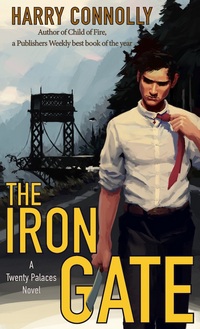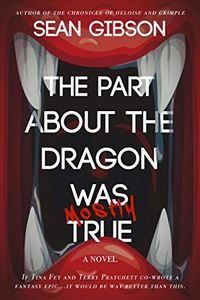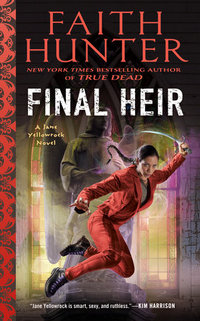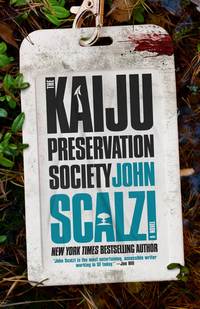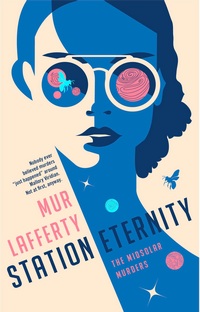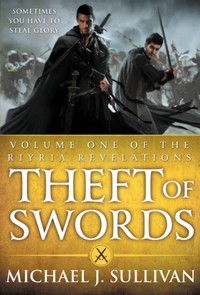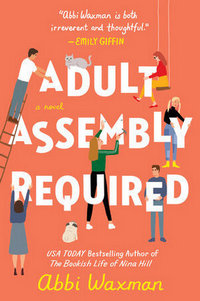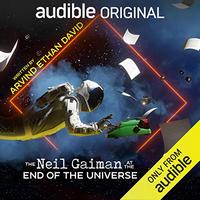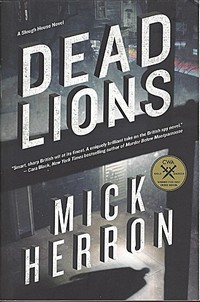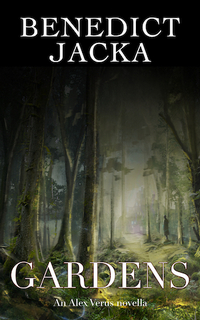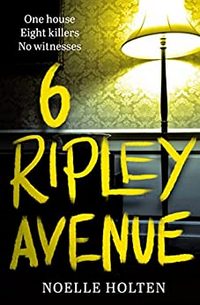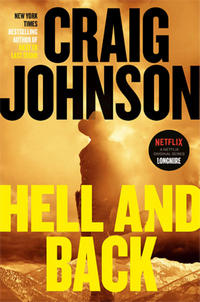Matthew Hanover’s newest book, Not Prepared, really wowed me and I’m so excited to share this Q&A about it today. Hanover’s no stranger to people who’ve read this site for any amount of time. I’ve blogged about all of his books and this is the fourth Q&A he’s participated in about his writing—plus a Q&A about Self-Publishing.
Here’s the latest with him—and the latest in my campaign to earn him some new readers.
In the past, your protagonists have been in roughly similar places in their lives/careers/emotional development. With Not Prepared, you’ve moved to an older, more mature character well-established in his career. Is this because of where you are in life? You just needed a change of pace, or something else?
After three books with 20-somethings as protagonists, I was more than ready to explore a story with a character at a different stage of life, closer to where I am. It may reflect my age or my growth as a writer, or just the fact that Neil had to be the age he is to make the story work. I started working on Not Prepared before I’d even finished Not Awkward because I’d come up with the idea and stuff just started pouring out.
Are you sticking with men at this stage of life or are you going to bounce around some more? (or have you even thought that far ahead?)
Writing for younger characters is increasingly difficult for me, but I won’t say I won’t ever write about 20-somethings again.
For Not Prepared, the story really dictated what the characters had to be. Chloe’s age came first because she had to have a certain level of maturity and resourcefulness, but also be right for coming-of-age story elements that would make their living situation ripe for comedy. Once Chloe’s age was established, that really helped establish what age Neil had to be. He couldn’t be in his twenties because he had to be a father figure, not someone who could have been her brother.
That makes a whole lot of sense—I focused on Neil because he’s the protagonist, but yeah, you need to start with Chloe and do the math from there for everything to work.
Exactly. Neil may be the protagonist, but Chloe is very much the main character of the story. She’s the one who drives the story forward. Neil’s romance with Jenna is incredibly important, obviously, but the most important relationship is between Neil and Chloe.
Speaking of careers for your protagonists (and/or other characters in the books), do you spend a lot of time thinking about those and what they say about your characters?
Sometimes, a character’s profession is based on what is most helpful for the story. In Not Famous, Nick was a self-employed web designer because his schedule needed to be flexible to make the story work. In Not Dressed, which is half a workplace comedy, I really had to find a profession that people think is really awesome, but isn’t so great in reality, so Jake became an architect. In Not Awkward, Scott’s profession was less important because was unemployed for the main action of the story because it enabled him to participate in the main arc.
What kind of research—if any—do you do to depict them? Let’s use Neil’s wedding photography biz as a case study, but feel free to use anyone else, too.
The most research I did was for Not Dressed because so much of the story took place at Jake’s place of work. I had to get insight from people who are or were in the field to get some of the technical details right. For Not Prepared I had to research a lot of professions to figure out what would be best for Neil, and a wedding photographer worked out great because it meant he could be home a lot during the week with Chloe, because of the awkwardness of their living together is really what drives the story. It took a lot of research to understand how these photographers work, what they charge, how they can make a living for a job that is generally occurring on weekends, how they keep money flowing in, what they do when they’re not actually shooting a wedding, etc.
Do you remember any professions that you considered for him and decided against?
I came up with the wedding photographer idea quite early, and once I thought of it, I knew that was the answer and stopped considering other ideas. Perhaps what I liked most about it, is how ironic the job is for him because he’s a guy who’s essentially resigned himself to being single, yet he’s constantly documenting weddings.
Neil and Jenna both have pretty serious anxiety issues, I think it’s safe to say. At what point did you decide that their anxieties were going to be a significant part of this book, or did that just come up as you write? What kind of thought/research did you have to put into them to make sure you depicted them right and/or they were good for the story? Did you start (with either of them) having a different kind of anxiety and have to backtrack and rework?
Neil’s hypochondria was perhaps one of the first ideas I had for the story. One of the things about writing an older character is that they are not only in different places professionally, but also have different attitudes about their own well-being. As you get older, you start getting screened for various diseases, and you’re more tired and prone to aches and pains. Giving Neil health anxiety was just the perfect way to exaggerate that.
As for Jenna, at some point, it made sense to me that what would make her and Neil a great couple is that they both have neuroses that have made them unlucky in love before, but allowed each of them to see beyond those issues and make their relationship work. Figuring out the right anxiety for Jenna took a lot of research. I wanted her to exude all the qualities of a strong, confident, professional woman, but to have a phobia that was not only real but something that most people would consider completely irrational.
My mother has a strong (very strong) preference along the lines of Jenna’s, so that’s the way I was raised (although my father tried his best to negate that influence). So I’ve got to say I get where she’s coming from, my feelings aren’t as strong as hers, but I sympathize with her. I can see where a full-blown anxiety like Jenna’s would be a real hindrance to a new relationship (friendship/romantic) with some people.
For sure. It was a fun thing to research because I really had to get an understanding of the phobia and research how people who have it get around it. It really made her character so much more interesting.
You’ve never shied away from some serious things in the pasts of your characters, but Chloe’s backstory and the events that brought her to Neil’s door are a few degrees “darker” (for lack of a better term) than you typically go. Was this a deliberate thing for you, “I need/want to start going deeper/darker,” or was it just what was needed for Chloe?
Chloe’s backstory was something I struggled with, and changed a few times during the writing process. Believe it or not, it was actually darker than the final version, but it never felt right for a comedy. I really wanted to focus on the struggles of her imposing on Neil’s bachelor life while dealing with the awkward challenges of growing up. To me that allowed for a lot of funny moments that were also realistic.
Dark-but-not-too-dark is a great way to think about it. Because, yeah, if you’d taken a step or two in either direction it would’ve been inappropriate for a comedy, or too light for it to seem real.
Exactly. And it worked out well. At first, it appears that Chloe is quite resilient and seems generally unaffected by the abandonment, but as time passes, it’s clear that it has had an impact on her. Had she endured more than mere neglect and abandonment, I doubt she’d have been as socially functional or emotionally stable to make the story work.
Let’s step away from Not Prepared for a bit before I end up asking you to break things down chapter by chapter (and don’t think that’s not a danger). Have you been reading anything lately that’s got you excited? Or do you have anything on your radar you can’t wait to get to?
I find it very difficult to read when I’m writing because I don’t like to feel too influenced by other work. So, I have a rather large pile of books to read that I gotta get cracking on. That said, Brian David Floyd has just finished the first draft of his next novel, and I’m looking forward to that. There’s more coming from Ian Shane and Wesley Parker that I plan to get into when they’re out as well.
My upcoming list looks similar—I’m waiting for an ARC for that Shane book to arrive soon—and cannot wait for that new Parker (it hurt me to decline a beta copy due to time). I’m off to look into Brian David Floyd as soon as I schedule this post…
But that brings up another question—when you’re writing, how do you spend your non-writing/not-work downtime? How does Matthew Hanover relax?
Well, right now I’m trying to enjoy the summer the best way I can. But, my best downtime is just chilling out at night binging my favorite shows from my youth.
When we talked about your previous book, you said that you’d written a bit of book 5—is that what you’re working on now, or have you changed to something else? Can you say anything about it and your timeline for releasing it?
I actually have two more books in various stages of development right now. One is the next book in the Wallflowers series, and another more experimental novel that will be set in the universe, but not part of the series. I’m not sure which will get finished or published first at this point.
That could easily lead to another batch of questions…but I’ll save those for later. 🙂
Thanks for taking the time to answer these—and for Not Prepared—I loved it, and hope others find it soon.
